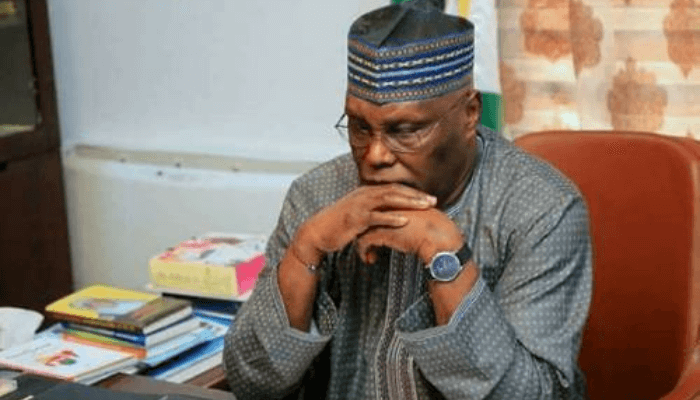In a poignant Democracy Day message, former Vice President Atiku Abubakar delivered a scathing critique of President Bola Tinubu’s administration, labeling it the “lowest ebb” in Nigeria’s democratic trajectory. He lamented the erosion of democratic principles achieved through the struggles of June 12, 1993, a date now officially recognized as Democracy Day to honor the presumed winner of the annulled presidential election, Moshood Abiola. Atiku argued that the current government has deviated from the ideals of the movement, resorting to suppression, silencing dissent, and prioritizing personal gain over the welfare of the Nigerian people. He emphasized the stark contrast between the hopes and sacrifices that birthed the democratic era and the prevailing atmosphere of authoritarianism and economic hardship.
Atiku, who was a key player in the political landscape during the June 12 struggle, recounted his personal sacrifices, including stepping aside for Abiola’s presidential bid, a gesture he described as a commitment to the greater national interest. He paid tribute to those who lost their lives in the pursuit of democracy, including Kudirat Abiola, Shehu Musa Yar’Adua, and Alfred Rewane, emphasizing the profound significance of their sacrifice in shaping Nigeria’s political destiny. He contrasted these acts of selflessness with the present administration’s alleged self-serving actions, denouncing what he perceives as the dismantling of the democratic progress achieved since 1999.
The former Vice President accused the All Progressives Congress (APC) and the federal government of implementing policies aimed at consolidating power and suppressing dissent, effectively creating a “creeping one-party dictatorship.” He criticized the alleged funneling of multi-billion-naira infrastructure contracts to individuals connected to the president and the symbolic renaming of national institutions after the sitting president. These actions, he argued, demonstrate a disregard for democratic norms and a tendency towards treating the nation as personal property, a stark contrast to the spirit of collective ownership envisioned by the June 12 movement.
Atiku contended that the current administration prioritizes control and obedience over empowering the populace, abandoning the ordinary Nigerian citizen while focusing on the comfort of the elite. He framed this governance style as the antithesis of the principles embodied by June 12. He emphasized the urgency of choosing between the path of democratic renewal and the descent into despotism, asserting that the formation of a united opposition front is not about power but a moral imperative to defend the legacy of June 12 and reclaim Nigeria for its people.
He called for a “moral crusade” to liberate the economy, democracy, and the dignity of Nigerians from what he characterized as authoritarian forces. He urged a collective resolve to safeguard the future of generations unborn, framing the ongoing political struggle as a fight against the privatization of the state and the reduction of citizens to mere pawns in a political game. He underscored the need for courage, clarity, and united action in this effort.
In closing, Atiku reiterated that the spirit of June 12 persists as a movement against oppression, not just a historical memory. He declared that the time for Nigerians to rise and defend their hard-won democracy is now. His message framed the current political climate as a critical juncture, urging citizens to actively participate in shaping the nation’s future and upholding the values for which many sacrificed their lives. He presented the choice between democratic renewal and despotism as a defining moment for Nigeria, echoing the weight of the 1993 elections and the subsequent struggle for democratic governance.


